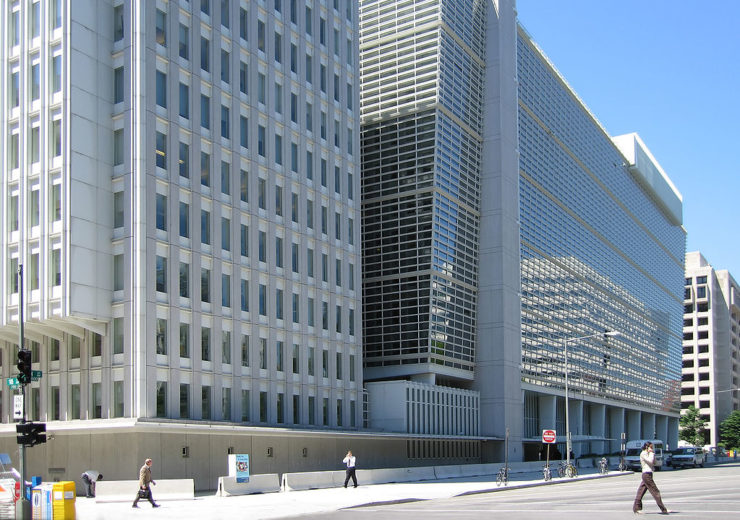The project is expected to benefit nearly 1.5 million people in Dhaka

The World Bank Group headquarters building in Washington, D.C. (Credit: Wikipedia/Shiny Things)
The World Bank has agreed to provide $170m in funding for the Dhaka Sanitation Improvement Project in Bangladesh.
The project is expected to benefit nearly 1.5 million people, enhancing Dhaka’s livability with safely managed sanitation services, especially in the southern part of the city.
World Bank country director for Bangladesh and Bhutan Mercy Tembon said: “About 3.5 million people living in Dhaka’s low-income communities, especially women suffer most from poor sanitation and high levels of pollution.
“This project will help ensure safe sanitation, which is essential for reducing public health risks as well as extreme poverty.”
Dhaka Sanitation Improvement Project to construct a sewage treatment plant
The project is also expected to build a new sewage treatment plant to treat sewage and septage at Pagla area with a capacity of treating about 150 million litres of domestic waste water per day.
World Bank Dhaka Sanitation Improvement Project team leader Arif Ahamed said: “By reducing the volume of untreated wastewater and fecal sludge into drainage canals and water bodies, the project will decrease the risk of inland floods and thus lessen the risks of water contamination.”
The project will also assist Dhaka Water Supply and Sewerage Authority (DWASA) to enhance efficiency in sanitation service delivery.
Furthermore to the enhancement of DWASA’s commercial management, the Dhaka Sanitation Improvement Project will help strengthen the management information system (MIS) and G(GIS) for sanitation and IT-enabled customer complaints management system.
The project will also offer training to DWASA officials.
The World Bank’s International Development Association (IDA) will provide a scale-up facility credit to the project, with a 34-year term, comprising a four-year grace period.
The project will also receive $170m funding from the Asian Infrastructure Investment Bank (AIIB) and $143m financing from the Bangladesh government.
